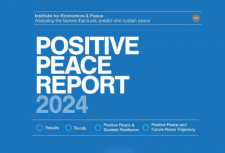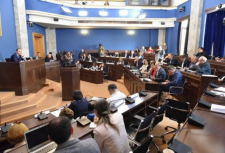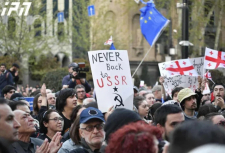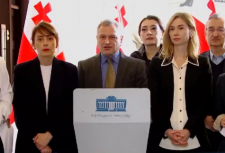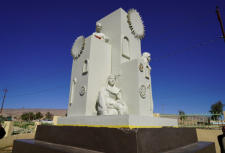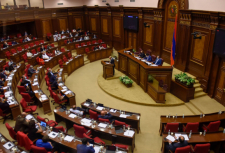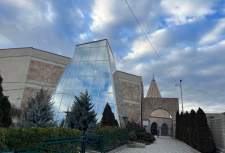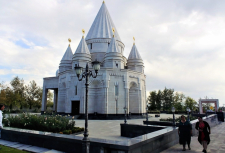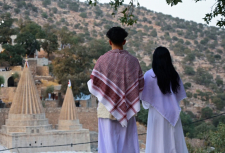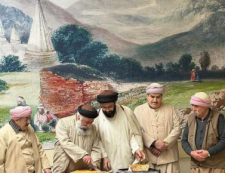The international coalition should give priority to the rescue of the missing Yezidis
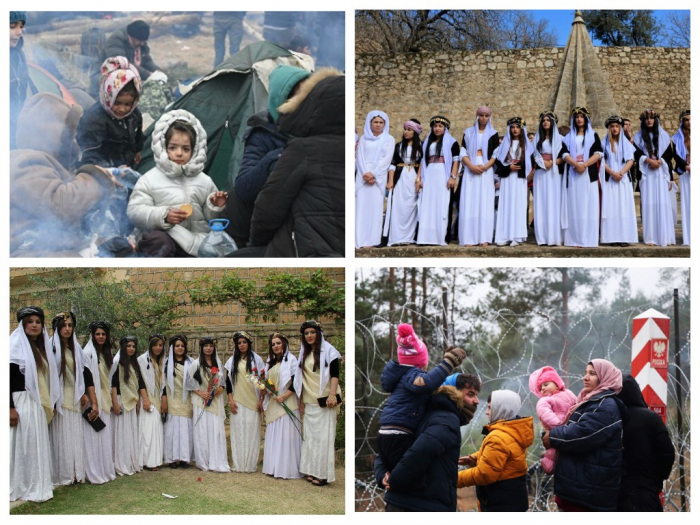
While Russia is conducting military operations in Ukraine, the Yezidi problem has been pushed into the background.
The Yezidis are one of the most persecuted peoples in the world. This is a small national minority from northern Iraq. The stories of Yazidi men, women, and children killed, abducted, and displaced by one of the most violent ISIS terrorist groups in the world are well documented.
Governments around the world have met with Yazidi survivors, awarded them with awards and honors, and promised to help. Some promises have been fulfilled, but the main requests of this ancient people remain unfulfilled: justice for the crimes committed, safe, voluntary, dignified return to the areas of origin, an international mission to rescue the missing Yezidis, as well as support for the victims and stabilization for the surviving Yezidi communities.
The last pursuit
When ISIS captured northern Iraq, the homeland of the Sinjar Yezidis, in 2014, its members had one goal - to carry out genocide, the destruction of the Yezidi people was studied, planned and justified by the leaders of ISIS. Yezidis were considered deserving of murder based on religious beliefs and identity. As the world now knows, women and girls were sold in the markets as sex slaves, and boys were trained as child soldiers, while more than 6,000 women and children were abducted. And, as most countries of the world have recognized, this is genocide.
Currently, more than 3,000 Yazidis are missing, their families know that they are alive, but they cannot bring them home.
Yezidis have faced persecution for generations, but the fact that women and children continue to be enslaved in the 21st century is a stain on all of humanity. At the time of writing this article, more than 2,700 Yazidis are still missing. After seven years, we know that some of them are no longer alive. The horror of captivity pushed many to suicide. Many were killed by their kidnappers, and we hope to return their remains someday. But some of them are still alive and are being held in Iraq, Turkey and Syria. Their families know they're alive, but they can't bring them home.
Human rights organizations have often warned about the inhumane conditions in the al-Khol camp in northeastern Syria, where Syrian and Kurdish forces, ISIS, are holding many Yezidis in slavery. Some Governments have repatriated their citizens from the camp, mostly children who cannot be held responsible for their parents' crimes. However, there is little mention of the search and rescue of Yezidis in the same camp. The Yezidis are still being held hostage by those who enslaved them. We know they're there, and some of them have escaped. However, there is no international assistance to the Yezidis. There is no coordinated campaign to rescue our fellow citizens missing in al-Khol or anywhere else.
Earlier this year, the Iraqi government bused nearly 100 ISIS families from the al-Khol camp back to Iraq, driving past mass graves where Yazidi bones lie exposed and unprotected. One female ISIS member proudly told the media that her husband and brother are ISIS members. There is no regret or remorse in her words, even that her husband bought and raped a "Yazidi slave." And although in March the Iraqi parliament passed a landmark law on compensation to victims of ISIS atrocities, and in particular to the Yezidis, it is unclear whether funding will be allocated for the actual implementation of this law.
Pari Ibrahim
Tags:
The international coalition should give priority to the rescue of the missing Yezidis

While Russia is conducting military operations in Ukraine, the Yezidi problem has been pushed into the background.
The Yezidis are one of the most persecuted peoples in the world. This is a small national minority from northern Iraq. The stories of Yazidi men, women, and children killed, abducted, and displaced by one of the most violent ISIS terrorist groups in the world are well documented.
Governments around the world have met with Yazidi survivors, awarded them with awards and honors, and promised to help. Some promises have been fulfilled, but the main requests of this ancient people remain unfulfilled: justice for the crimes committed, safe, voluntary, dignified return to the areas of origin, an international mission to rescue the missing Yezidis, as well as support for the victims and stabilization for the surviving Yezidi communities.
The last pursuit
When ISIS captured northern Iraq, the homeland of the Sinjar Yezidis, in 2014, its members had one goal - to carry out genocide, the destruction of the Yezidi people was studied, planned and justified by the leaders of ISIS. Yezidis were considered deserving of murder based on religious beliefs and identity. As the world now knows, women and girls were sold in the markets as sex slaves, and boys were trained as child soldiers, while more than 6,000 women and children were abducted. And, as most countries of the world have recognized, this is genocide.
Currently, more than 3,000 Yazidis are missing, their families know that they are alive, but they cannot bring them home.
Yezidis have faced persecution for generations, but the fact that women and children continue to be enslaved in the 21st century is a stain on all of humanity. At the time of writing this article, more than 2,700 Yazidis are still missing. After seven years, we know that some of them are no longer alive. The horror of captivity pushed many to suicide. Many were killed by their kidnappers, and we hope to return their remains someday. But some of them are still alive and are being held in Iraq, Turkey and Syria. Their families know they're alive, but they can't bring them home.
Human rights organizations have often warned about the inhumane conditions in the al-Khol camp in northeastern Syria, where Syrian and Kurdish forces, ISIS, are holding many Yezidis in slavery. Some Governments have repatriated their citizens from the camp, mostly children who cannot be held responsible for their parents' crimes. However, there is little mention of the search and rescue of Yezidis in the same camp. The Yezidis are still being held hostage by those who enslaved them. We know they're there, and some of them have escaped. However, there is no international assistance to the Yezidis. There is no coordinated campaign to rescue our fellow citizens missing in al-Khol or anywhere else.
Earlier this year, the Iraqi government bused nearly 100 ISIS families from the al-Khol camp back to Iraq, driving past mass graves where Yazidi bones lie exposed and unprotected. One female ISIS member proudly told the media that her husband and brother are ISIS members. There is no regret or remorse in her words, even that her husband bought and raped a "Yazidi slave." And although in March the Iraqi parliament passed a landmark law on compensation to victims of ISIS atrocities, and in particular to the Yezidis, it is unclear whether funding will be allocated for the actual implementation of this law.
Pari Ibrahim
Tags:
